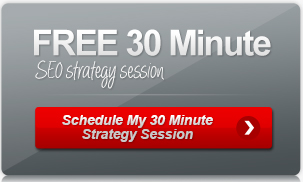Every month as I prepare to write about a new SEO related topic I review a few of my favorite SEO news sites, and blogs in order to come up with ideas to write about. I try to find interesting topics that I can add valuable information to and include easy to follow tips that you can use to improve your website and your own rankings. If you are a client, then you know this work is already being done on your behalf. This month I read an article on Aaron Wall’s SEOBook Blog and it was Aaron Wall’s interview with Rand Fishkin the Founder of SEOmoz. I have followed, read and learned a lot about SEO from both of these individuals. SearchRankings.Net uses software, tools, and API’s from both of their companies to conduct our own analysis for our company and clients. I consider them both authorities in SEO. So this month I’m going to highlight some of the most interesting passages from this interview, and I provide a link to the full interview that I would encourage anyone who wants to know how “The Data Behind SEO” really works to read this interview.
Early in the interview Aaron Wall asks Rand Fishkin about the most counter-intuitive things he has learned in SEO. Things that shouldn’t work to increase rankings, that do. Rand makes a comment about paid links and how easily he thinks they could be identified and removed from the index. In addition to making this comment he goes on further to say he doesn’t understand why Google doesn’t do something about it. Finally, Rand says his own customers do not want to see metrics that would identify paid links. One possible reason for this “don’t ask, don’t tell” policy on paid links, may be the sheer volume of links, and the possibility that the majority of even the most popular sites on the web are paying for text link advertising. If you setup an index that discounts or removes suspect text link advertising you could remove as many relevant sites as you do “spam sites”.
In our experience at SearchRankings.Net the best defense against link related exposure, is new unique content, good SEO structures, and relevant links. Professional link building is moving away from code based links and into publishing contracts for specific text link advertising. The more manually placed relevant links you can acquire the better your site will rank, and the less exposure your site will have to link related penalties.
Aaron asked Rand why SEOmoz (Rand’s company) or SEOBook (Aaron’s company) weren’t ranked higher in Google for the term ‘SEO’. Both companies are ranked in the top ten, but neither are ranked top 5. What I found most interesting was the comment about Google’s “exact-match domain biased preference”. I’m still intrigued by the fact the domain names can carry so much weight in Google for some of the most competitive terms. We have tested exact-match in the past and it has failed as often as it has succeeded. However if you ever have the opportunity to pick up domain name that is an exact match to one of your primary search terms, just do it.
There is much more to the interview, and I may continue my own review and analysis of it next month. For now you can check the full interview at: http://www.seobook.com/rand-fishkin-interview

